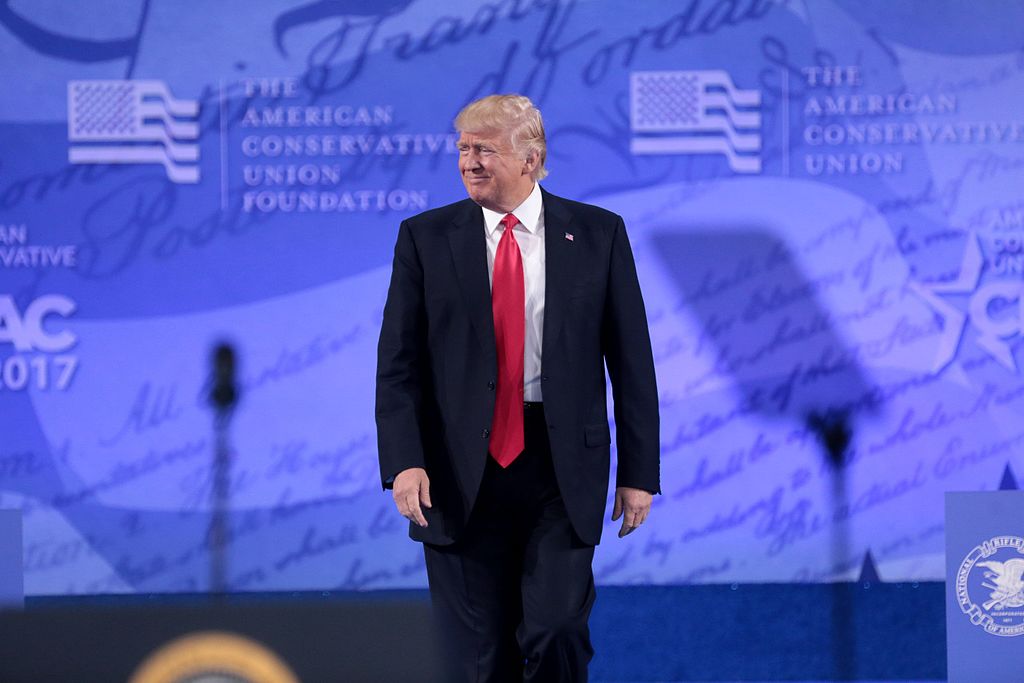Balancing the federal budget has long been a cornerstone of fiscal responsibility in American politics, and President Donald Trump’s plans for 2025 have reignited this debate. His administration has outlined a series of proposals aimed at reducing the national deficit, but critics argue that these measures come at the expense of crucial social programs and public services.
Spending Cuts and Government Efficiency: A Double-Edged Sword?
Targeted Program Reductions
The Trump administration’s strategy to balance the federal budget heavily relies on significant cuts to non-defense discretionary spending. Programs in education, housing, and environmental protection are expected to face deep reductions. Advocates for smaller government believe these cuts will streamline bureaucracy and eliminate inefficiencies.
However, critics warn of potential consequences for vulnerable populations. Cuts to federal housing assistance programs, for instance, could exacerbate homelessness in urban areas. Similarly, reductions in education funding may affect public schools and higher education institutions, raising concerns about long-term impacts on workforce development.
Defense Spending Remains Intact
While other areas face cutbacks, Trump’s 2025 budget plan maintains robust funding for the military. The administration argues that national security is non-negotiable, especially given geopolitical tensions. This prioritization has drawn criticism from advocates of balanced spending, who believe excessive defense budgets contribute to the deficit without addressing domestic issues.
Revenue Generation: Tax Reform or Burden Redistribution?
Corporate Tax Adjustments
To offset spending reductions, the administration proposes generating revenue through changes in corporate tax policies. While exact details remain unclear, analysts speculate that Trump will push for closing tax loopholes for large corporations. Proponents argue this could level the playing field for small businesses, but skeptics question whether these measures will be sufficient to close the budget gap.
Middle-Class Tax Concerns
Trump’s tax policies have historically favored high-income earners and corporations, and there is widespread speculation that his 2025 proposals could place additional burdens on the middle class. Some experts argue that an over-reliance on tax cuts for wealthier Americans risks widening the income inequality gap further.
Netizens React: Divided Opinions Flood Social Media
- @BudgetHawk2025: “Finally, a president who takes fiscal responsibility seriously! Long overdue reforms are on the way.”
- @EducationMatters: “Cutting school budgets? That’s not balancing the budget—that’s sabotaging our children’s future!”
- @DefenseFirst: “Strong military spending is essential in these times. Critics need to understand the importance of national security.”
- @PolicyCritic: “Closing corporate loopholes sounds great, but will it actually happen? Too much rhetoric, not enough action.”
- @ProgressNow: “Slashing environmental programs while boosting defense? This isn’t balancing the budget; it’s picking winners and losers.”
- @FiscalRealist: “Balancing the budget is critical, but not at the expense of crucial social services. There must be a middle ground.”



 Denver Mayor Orders Police to Protect Protesters, Restricts ICE Access to City Property
Denver Mayor Orders Police to Protect Protesters, Restricts ICE Access to City Property  Russia Signals Openness to U.S. Security Guarantees for Ukraine at Geneva Peace Talks
Russia Signals Openness to U.S. Security Guarantees for Ukraine at Geneva Peace Talks  USITC to Review Impact of Revoking China’s PNTR Status, Potentially Raising Tariffs on Chinese Imports
USITC to Review Impact of Revoking China’s PNTR Status, Potentially Raising Tariffs on Chinese Imports  Federal Judge Blocks Virginia Social Media Age Verification Law Over First Amendment Concerns
Federal Judge Blocks Virginia Social Media Age Verification Law Over First Amendment Concerns  Iran Supreme Leader Ayatollah Ali Khamenei Killed in Israeli, U.S. Strikes: Reuters
Iran Supreme Leader Ayatollah Ali Khamenei Killed in Israeli, U.S. Strikes: Reuters  Dominican Republic Unveils Massive Rare Earth Deposits to Boost High-Tech and Energy Sectors
Dominican Republic Unveils Massive Rare Earth Deposits to Boost High-Tech and Energy Sectors  Trump Media Weighs Truth Social Spin-Off Amid $6B Fusion Energy Pivot
Trump Media Weighs Truth Social Spin-Off Amid $6B Fusion Energy Pivot  ICE Hiring Surge Raises Vetting Concerns Amid Rapid Expansion
ICE Hiring Surge Raises Vetting Concerns Amid Rapid Expansion  Trump Launches Operation Epic Fury: U.S. Strikes on Iran Mark High-Risk Shift in Middle East
Trump Launches Operation Epic Fury: U.S. Strikes on Iran Mark High-Risk Shift in Middle East  Pakistan-Afghanistan Tensions Escalate as Taliban Offer Talks After Airstrikes
Pakistan-Afghanistan Tensions Escalate as Taliban Offer Talks After Airstrikes  Israel Launches Fresh Strikes on Iran After Death of Supreme Leader Ayatollah Khamenei
Israel Launches Fresh Strikes on Iran After Death of Supreme Leader Ayatollah Khamenei  Venezuela Oil Exports to Reach $2 Billion Under U.S.-Led Supply Agreement
Venezuela Oil Exports to Reach $2 Billion Under U.S.-Led Supply Agreement  Pentagon to Halt Ivy League Programs for U.S. Military Officers Starting 2026
Pentagon to Halt Ivy League Programs for U.S. Military Officers Starting 2026  Pentagon Leaders Monitor U.S. Iran Operation from Mar-a-Lago
Pentagon Leaders Monitor U.S. Iran Operation from Mar-a-Lago  Trump Orders Federal Agencies to Halt Use of Anthropic AI Technology
Trump Orders Federal Agencies to Halt Use of Anthropic AI Technology  Trump Floats “Friendly Takeover” of Cuba as Rubio Reportedly Engages in Talks
Trump Floats “Friendly Takeover” of Cuba as Rubio Reportedly Engages in Talks  Netanyahu Suggests Iran’s Supreme Leader Khamenei May Have Been Killed in Israeli-U.S. Strikes
Netanyahu Suggests Iran’s Supreme Leader Khamenei May Have Been Killed in Israeli-U.S. Strikes 
































